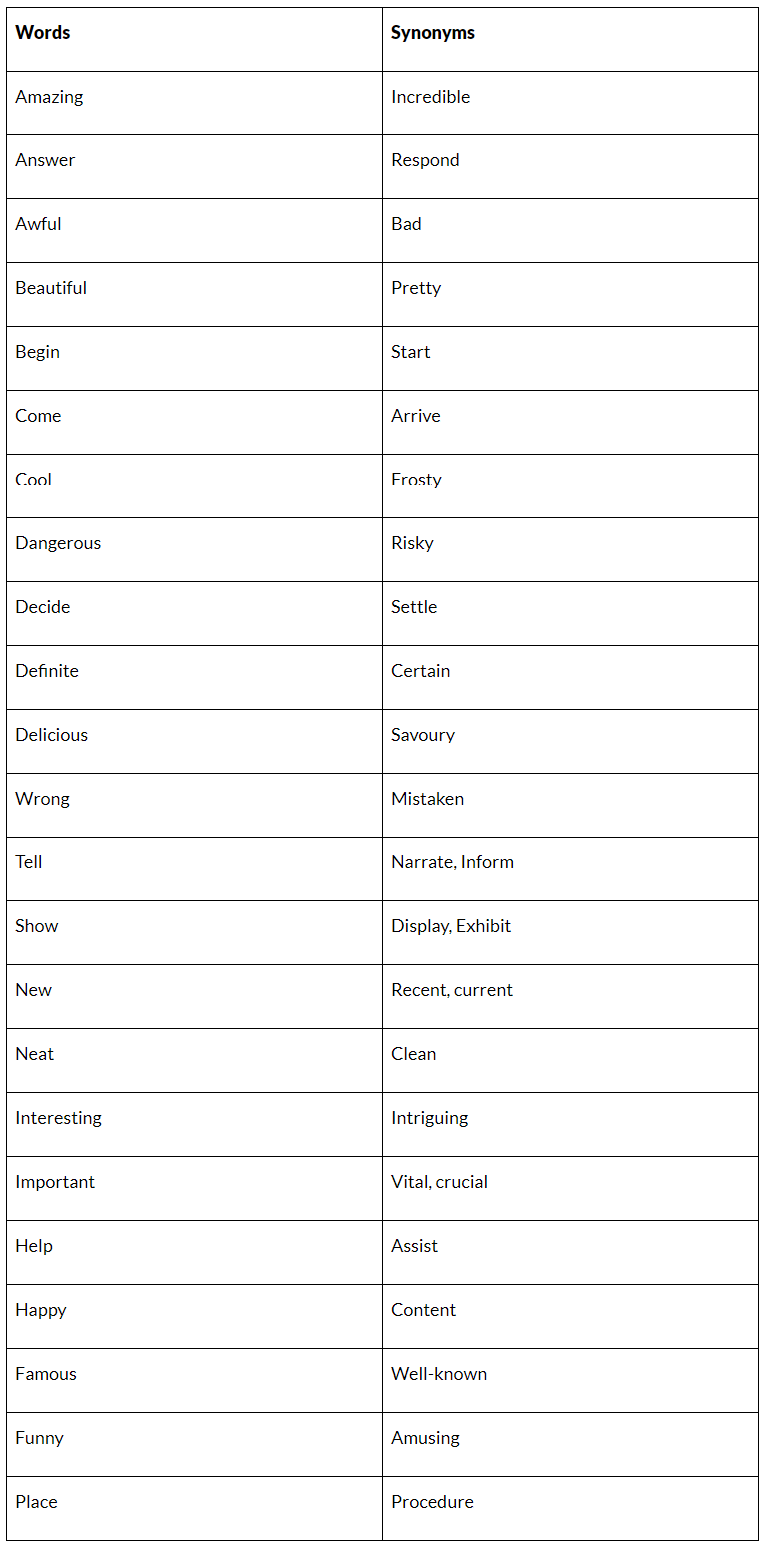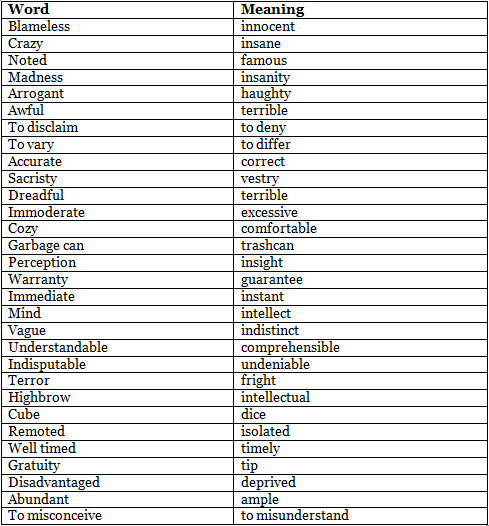Reading and Writing Vocabulary List | Vocabulary for IELTS PDF Download
| Table of contents |

|
| Reading and Writing Vocabulary: Synonyms |

|
| Phrasal Verb for IELTS vocabulary |

|
| A List of Vocabulary Words for IELTS |

|
| Idioms for IELTS Vocabulary |

|
Reading and Writing Vocabulary: Synonyms
Most candidates lose marks as they do not use synonyms in the reading and writing section. Here is a list of popular words and their synonyms to help you expand your vocabulary for the IELTS reading and writing sections.
Phrasal Verb for IELTS vocabulary
A phrasal verb is formed by combining two or three words from different grammatical categories, creating a distinct meaning that should be applied based on the context. Additionally, phrasal verbs are part of the IELTS vocabulary, and incorporating them showcases your proficiency in English. It's crucial to grasp the meaning of a phrasal verb to avoid using it incorrectly, as misuse can impact your band score.

A List of Vocabulary Words for IELTS

Idioms for IELTS Vocabulary
The speaking section of the IELTS presents another set of challenges for many candidates. Nevertheless, it provides an opportunity to demonstrate your proficiency in fluency, pronunciation, and IELTS-specific vocabulary.
In this section, incorporating idioms aids in articulating ideas more clearly and lends a natural tone to your responses. However, it is crucial to use idioms judiciously, understanding their meaning thoroughly to avoid mark deductions. Therefore, it is advisable to employ idioms in tasks only when you are confident about both their meaning and contextual relevance.
To assist you in this regard, we have compiled a list of common idioms relevant to IELTS vocabulary, specifically for use in the speaking section. Keep in mind that utilizing IELTS-appropriate vocabulary effectively can significantly contribute to achieving a higher band score when used appropriately.
Here is a sample list of idioms you can consider:
- To be on top of the world
- To be on cloud nine
- If my memory serves me well
- Over the moon
- Once in a blue moon
- Piece of cake
- A drop in the ocean
- To be like a dog with two tails
- It makes my blood boil
- Change one’s mind
- Call it a day
- Put all your eggs in one basket
- Blessing in disguise
- Actions speak louder than words
- I hit the ceiling
- Fresh as a daisy
- Couch potato
- Full of beans
- A bad egg
- Eager beaver
|
20 videos|3 docs
|
FAQs on Reading and Writing Vocabulary List - Vocabulary for IELTS
| 1. What is the IELTS exam and what does it assess? |  |
| 2. How long does the IELTS exam take to complete? |  |
| 3. Can I use a pen or a pencil to write my answers in the IELTS exam? |  |
| 4. How is the reading section of the IELTS exam structured? |  |
| 5. Can I bring a dictionary to the IELTS exam? |  |

|
Explore Courses for IELTS exam
|

|


















